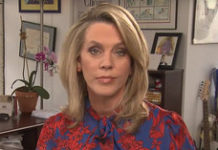
Excellent patient and public involvement (PPI) plays an essential role in health and social care research. Members of the public, as those benefiting from research, should have a say in decisions that impact them. Their perspective and lived experience can increase the relevance, impact and quality of research. That’s why Cancer Research UK has been actively involving people affected by cancer since 2014 across many of our research funding activities, as well as across much of the charity’s work.
N.B.: Where we use the term “patient” or “patient involvement” we mean the involvement of people affected by cancer (patients, carers and loved ones). Cancer Research UK also involve and work with members of the public and wherever we do this, we will specify this.
We feel we have a responsibility to improve the extent and quality of involvement in research across the sector. That’s why we signed a new Shared Commitment to improve public involvement in health and social care research. By sharing learnings and expertise with other organisations and tackling barriers together, we can progress much faster than we can do alone. We believe we can create an environment that leaves no one behind – where research about people doesn’t happen without them.
A year on from signing up to the commitment, we’re reflecting on our successes in involving people affected by cancer in research, but also on where we strive to do better. We’ve written this article with two of Cancer Research UK’s Patient Involvement Network members, Ally Boyle and Terry Kavanagh. We’re incredibly grateful for their input.
Working in partnership to shape organisational and research priorities
Involving people affected by cancer in shaping Cancer Research UK’s new strategy has been inspiring. As an organisation that exists to beat cancer and bring hope to people affected by it, it’s critical that our strategy reflects their needs. Involvement has enabled us to understand what matters most to the cancer community and ensure our work is focused on tackling those issues from the outset.
We collaborated with over 60 people affected by cancer and asked them to feed into different stages and areas of strategic development (via Cancer Research UK’s existing Cancer Insights Panels and through focus groups).
We heard that beating cancer is about more than just survival. It must also mean reducing the negative effects of treatment and improving quality of life. As a result, the charity has committed to discovering kinder and more targeted treatments, and to learning more about the biology of cancer so that we can start to address the impacts of cancer on the body, such as pain, muscle wasting and fatigue.
We also heard how crucial research into early detection, prevention and data is to patients and their families. These are now three of the key priorities in our research strategy, areas where we want to accelerate progress to improve outcomes for cancer patients.
Being involved in the strategy development has been another reminder of how determined Cancer Research UK are. They want to keep people affected by cancer at the heart of their thinking. As a cancer patient I think the Strategy is exciting and offers that one thing we all seek…hope.
Ally Boyle, Patient Involvement Network Member
Patient involvement in Cancer Research UK’s strategic development has also led to deeper internal commitments that we are excited to see the impact of. Patient involvement itself was included as one of the charity’s objectives within the strategy:
“Put people affected by cancer at the heart of what we do and involve them in shaping our work as partners.”
It has also been identified as a key principle within our Research Strategy:
“To make our research as impactful as possible, we are committed to involving people affected by cancer in our work. This means supporting patients, and their carers and families, to influence and shape our research.”
These commitments demonstrate to staff and researchers that involvement is vital, expected and provides great benefits. It sets a great foundation for further strengthening the culture of involvement at Cancer Research UK, as reflected in our Statement of Intent for Patient and Public Involvement.
Sharing decision-making across our research funding
People affected by cancer and the public have had a growing influence within research funding decisions, particularly over the last year. We’ve seen two powerful models of involvement within research committees (whose role is to review research projects and decide which ones to fund or not).
One model involves patient and public representatives discussing research proposals independently as a PPI Panel, sharing feedback, and reviewing the PPI plans included in the funding application. Chairs from the PPI Panel then attend research committee meetings, where they represent the views of all patient and public representatives and influence funding decisions.
An area in which we support this is within the Early Detection and Diagnosis Research Committee and Prevention and Population Research Committee. Here two patient co-chairs have equal voting rights to the other scientific committee members.
Involving people affected by cancer and the public in this way creates a two-way relationship where they influence funding decisions. We’re looking forward to understanding the impact this model of involvement has on the decisions of these committees.
While we patients may not know the science, we do know the cancer, which I believe gives us the right to participation, engagement, and involvement in the research process. People affected by cancer must be considered as equals in the research process.
Terry Kavanagh, Patient Involvement Network Member
The Clinical Research Committee which oversees funding and endorsement of clinical trials, involve people affected by cancer in a different way. Here, eight patient representatives take turns in getting involved, alternating meeting attendance. As in the previous model, patient representatives are equal committee members, and everyone has the same voting rights. As well as ensuring that people affected by cancer are at the heart of the research we fund, their role includes assessing PPI plans from funding proposals, ensuring that all research is done to high standards, and contributing to the ongoing evaluation and development of PPI processes.
For example, patient representatives have raised concerns about inclusivity of trial recruitment processes and recommended how researchers could reach under-represented groups. They also play a key role in the monitoring of under-performing research we already fund, and they can provide their perspective when we need to make difficult decisions about whether to continue funding or not.
Patient involvement has been a key component of research activity within Cancer Research UK, and this has been so effective because we have focussed on the areas of mutual benefit. This integrated approach has certainly moved us forward, but there is always more to do.
Ian Walker, Executive Director of Policy, Information & Communications department at Cancer Research UK
What next?
While it’s important to celebrate where involvement has had a positive impact on our work, we must reflect on what we could do better. One major challenge will be making sure the involvement process is inclusive and takes into account our commitments to Equality, Diversity and Inclusion (EDI). Beating cancer means beating it for everyone. We need to ensure that we involve communities that reflect the population Cancer Research UK exists to serve. Without it, we risk exacerbating inequalities.
There is a role for everyone in PPI. People need to see there is a place for them in research.
Terry Kavanagh, Patient Involvement Network Member
To help achieve this, the patient involvement team are working with people affected by cancer to co-produce plans to improve equality, diversity and inclusion across our involvement activity. Over the last year, we’ve targeted engagement with selected groups we know are currently underrepresented across our networks and panels.
We’ve made progress in some areas, for example in increasing ethnic minority membership within our Policy & Communications Cancer Insight Panel from 7% to 23%.
However, there’s much more to do.
Being truly inclusive means challenging everything we do and transforming the way in which we work. We need to continue to identify communities most underserved and underrepresented by research and get better at engaging them. We need to invest in relationships, build trust, and work together to understand barriers and opportunities. Once communities have been successfully engaged and barriers overcome, involvement opportunities must be appealing, appropriate and inclusive for different communities.
We believe that through the Shared Commitment we’ll be able to make greater impact in areas such as EDI than we can do alone. That’s why we’re encouraging others from across the health and social care research community to join us and work in partnership to drive up standards in public involvement.
This article was written in collaboration by:
Anne-Sophie Kleczewski, Cancer Research UK Patient Involvement Manager supporting the Research & Innovation Directorate
Ally Boyle, Cancer Research UK Patient Involvement Network Member
Terry Kavanagh, Cancer Research UK Patient Involvement Network Member
Jane Oakley, Cancer Research UK Patient Involvement Lead






